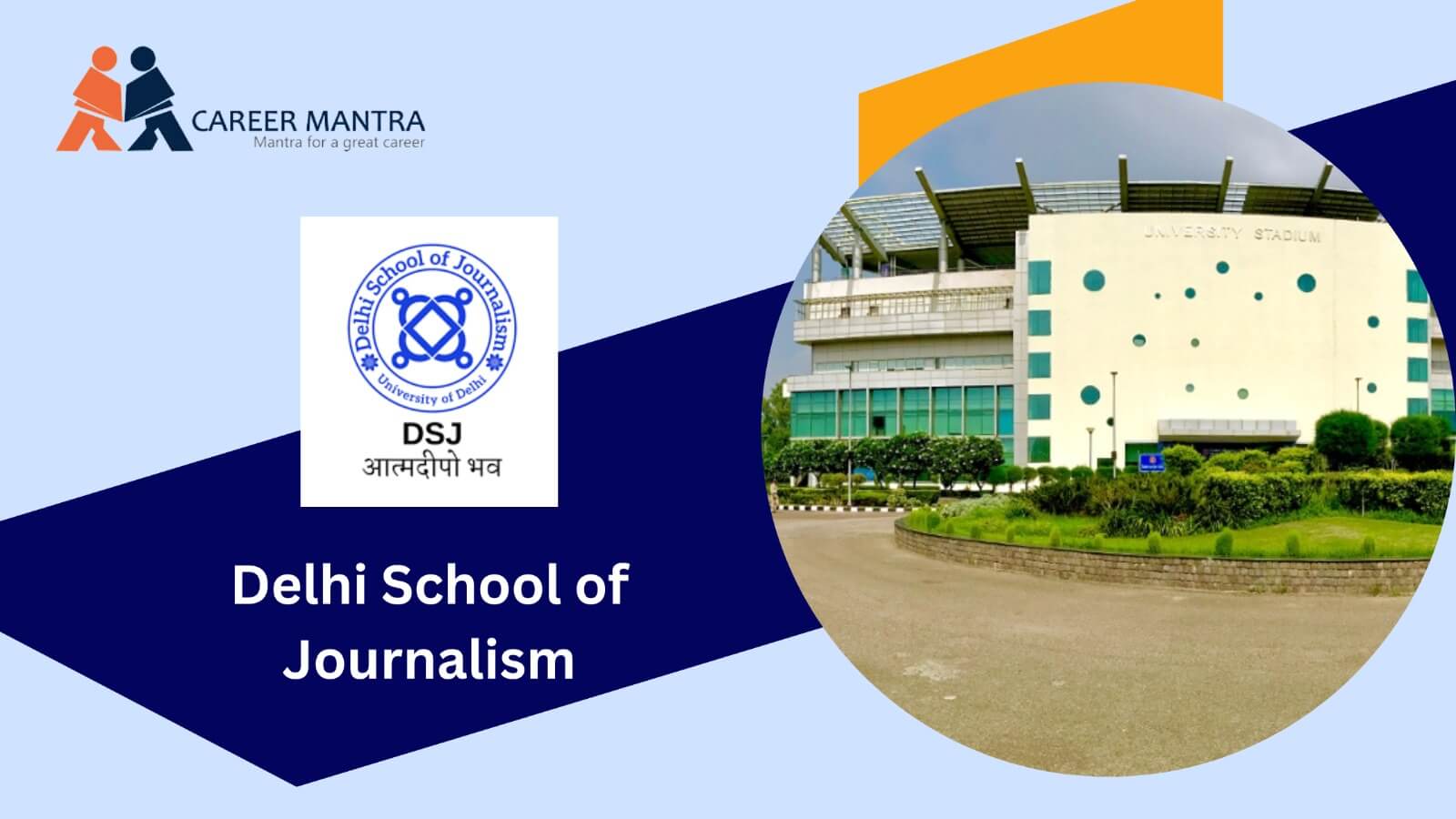Delhi School of Journalism

About Delhi School of Journalism University
At the University of Delhi, the Delhi School of Journalism (DSJ) is a relatively new division. It was established in 2017 with the goal of identifying and supporting emerging journalists so they could become the engine of an information economy and public sphere that prioritised quality, thereby advancing democracy and development in the broadest sense. The department is located near the University of Delhi stadium and offers the majority of contemporary amenities to the students. A five-year integrated programme in journalism (FYIPJ) with a focus on languages is offered by the department.
After completing the Bachelor of Journalism (BJ), students can choose to leave the programme or continue with the Master of Journalism (MJ). There are 600 students enrolled in DSJ total. The students can choose from 28 core courses, 2 programmes to improve their skills, 2 skill-based electives, 4 general electives, 4 electives in particular disciplines, and language courses (foreign and vernacular). Through engagements in both theory and practise, the department evaluates the student’s performance. At DSJ, classroom instruction is mixed, and technologically advanced classrooms are used to engage pupils.
Media industry experts and educators with expertise in a variety of media studies fields make up the faculty. Additionally, DSJ provides resources like a library, smart classrooms, an ICT lab, and a visual production lab to support theoretical and practical activities. At the University of Delhi, the Delhi School of Journalism (DSJ) is a relatively new division. It was established in 2017 with the goal of identifying and supporting emerging journalists so they could become the engine of an information economy and public sphere that prioritised quality, thereby advancing democracy and development in the broadest sense.
Delhi School of Journalism Courses –
The University of Delhi’s Delhi School of Journalism (DSJ) offers a Five-Year Integrated Program (FYIP) in Journalism that includes a Dissertation and 28 Core Courses, as well as 2 Ability Enhancement Compulsory Courses, 2 Ability Enhancement Elective Courses (Skill-Based), 4 General Elective Courses, and 4 Discipline Specific elective courses.
Lessons in the classroom (50% credits) and assignments/projects and an internship (50% credits) are equally weighted in the course’s design. Producing newsletters, documentaries, broadcast newscasts, and multimedia content that meets broadcast requirements are required of students. A modern media lab and studio will provide enough support for the educational process. The course incorporates the fundamentals of the social sciences, sciences, gender studies, ethics, and global issues. It is designed as an inter-disciplinary learning experience.
Students must do research-driven projects relating to media and communication as well as internships with media organisations in addition to their usual academic assignments. The instruction would initially rely on cooperative teaching, involving distinguished experts from the industry and journalism academics from several colleges within the University of Delhi. Other universities’ faculties in Delhi and its environs might also be invited. The university’s academics in charge of those departments will teach foreign and Indian languages, or professors they propose.
Delhi School of Journalism Admissions –
Admission via CUET is still being accepted. On October 30, the cutoff for round 2, on November 10 for round 2, and on November 22 for round 3 will be made public. By November 3, admission fees for round 2 must be paid. Additionally, the CUET spot round of admission is still going on. Students who qualify may apply until November 19.
Delhi School of Journalism Vision –
A quality-driven public realm and information economy are the driving forces behind the vision and goal of the Delhi School of Journalism (DSJ), University of Delhi, which is to discover and support emerging journalists and so advance democracy and development in the broadest sense.
The Delhi School of Journalism (DSJ) is focused on developing a system of education that can disseminate theoretical viewpoints, practical skills, and professional service ethics. It is centered on developing a network of brains that can acquire and disseminate information without falsification and improve the nation’s democratic institutions and governance frameworks. Through inter-disciplinary modules, cutting-edge pedagogical techniques, and the incorporation of critical insights into the teaching, learning, and professional schemes, the institution seeks to instil a sense of responsibility into the students’ personal and professional conduct in order to preserve the culture of peace, development, and order in society.






